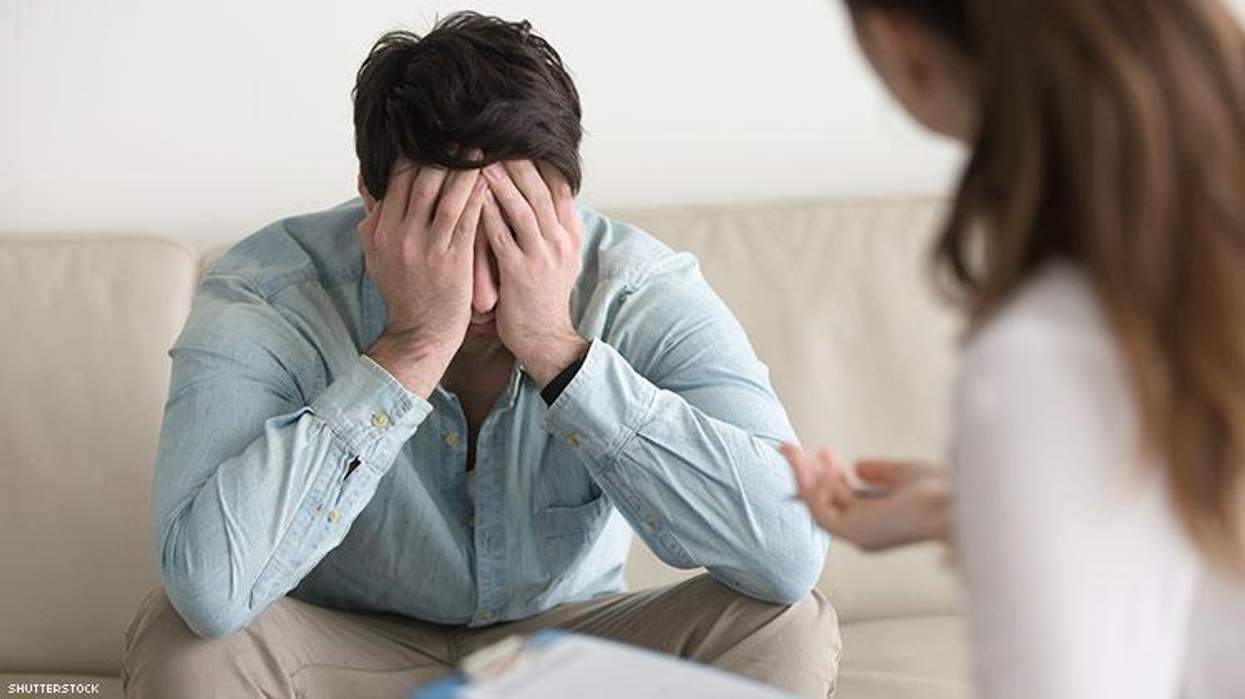On the International Day Against Homophobia, Transphobia, and Biphobia we have the chance to reflect on the violence perpetrated towards members of the LGBT+ community. Many important issues will be highlighted: lack of representation in the school curriculum, lack of gender recognition laws, the anti-trans movement, decriminalization of homosexuality around the globe. As a global community, we can all recognize that few things threaten our liberty more than a practice designed to eradicate us. So, on this day we must also highlight "conversion therapy" in its many forms.
What you think of when you hear the term "conversion therapy" depends significantly on where you are from. In the United States you may picture crisp white shirts, a light-wood crucifix, a white-knuckled hand grasping a thick bible. In parts of South America it could be torture, rape, blood spreading on a wet concrete floor. In parts of the Middle East -- a doctor's office, electrodes, leather straps. And in some cases, it's a professional-appearing "support group" available to those who can not afford any other form of therapy.
Yet woven through different practices is the same core: you are wrong and you must conform. "Conversion therapy" is the process of cisgender heteronormativity becoming a blood sport; of imposing the "norm" on those deemed to fall outside it through psychological and/or physical force, attacking and degrading the very core of a human being. These practices have been recognized to be tantamount to torture by the United Nations High Commissioner for Human Rights.
Just as we move away from binaries such as gay/straight and men/women we too cannot neatly separate "conversion therapy" victims into voluntary/coerced. Rather we should recognize a spectrum ranging from those seeking to be changed at one end, to those who are forced physically at the other. As everyone is raised in a society which expects some level of compulsory cis-heteroism, we cannot separate the resulting shame from the desire for someone to seek out "conversion therapy." But what drives them to do so?
In Maslow's hierarchy of needs, love and belonging come before self-actualization. We are programmed, by evolution, to want to be a part of the group. For many us of queerness and coming out simultaneously creates and solves the same problem. The problem being -- we live in a homophobic, biphobic, transphobic world, and the solution being -- we can be part of culturally rich queer communities. So while we may be shunned, we are not alone. That is not the case for everyone. For some, with strong religious beliefs for example, finding a new family in the queer community is a non-starter. So they choose to belong before self-actualizing. And for others, their culture is such that being out threatens their foundational needs for safety.
Bella FitzPatrick is a Fellow at OutRight Action International and Executive Director of ShoutOut.




































































Charlie Kirk DID say stoning gay people was the 'perfect law' — and these other heinous quotes